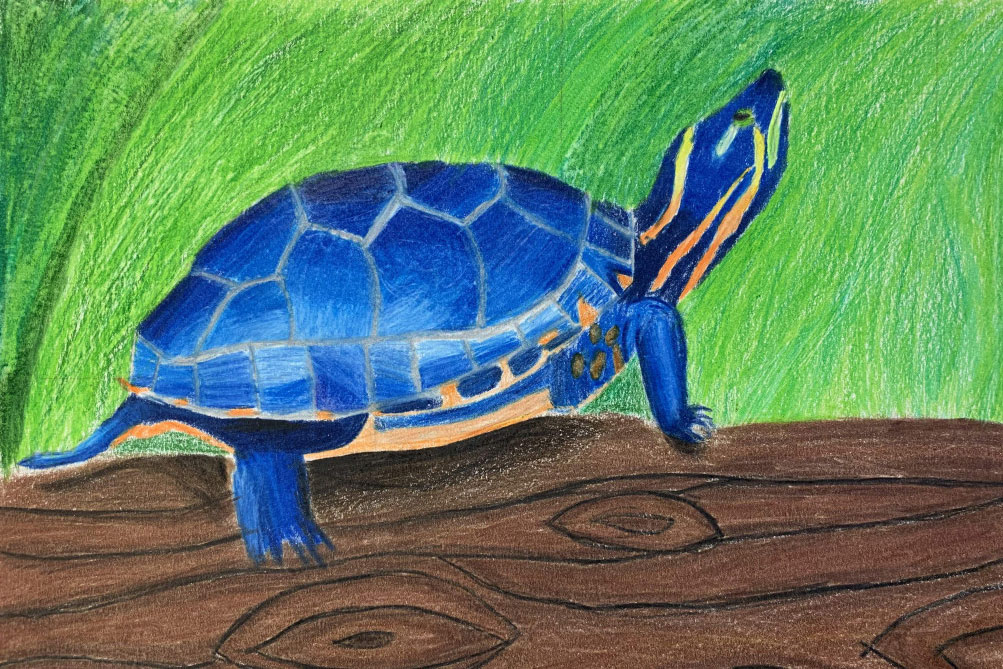
By Monica Macoubrie, Wildlife Education Specialist
October is a fascinating month for many. The leaves are starting to show their autumn hues, the crisp fall air lets us finally wear sweaters, and the spooky, holiday season has us celebrating all month long. Now, there is one more reason to celebrate one of the best months of the year: Although National Reptile Awareness Day is Oct. 21, by a proclamation from Gov. Pete Ricketts, the entire month has been designated to reptiles.
Reptiles are a special group of animals that breathe air, have backbones and are covered in scales or bony plates. In Nebraska, this includes all of our snakes, lizards and turtles — 48 species total. Reptiles regularly shed the outer layer of their skin or shells, and because they are cold blooded, cannot maintain a constant internal body temperature like birds or mammals can; you’ll often see reptiles basking in the sun to warm up or gliding into the water to cool down on a hot summer day. Most of these animals lay eggs as well. The egg shells of reptiles are normally soft, almost leathery. There are exceptions, however, as not all reptiles lay eggs: Garter snakes actually give live birth.
These often feared and misunderstood animals play critical roles in maintaining healthy ecosystems. Comprising of both predator and prey species, Nebraska lizards, snakes and turtles help regulate healthy populations of animals, helping to balance diverse ecosystems. And less obvious, reptiles provide many economic benefits, such as rodent and insect control, which helps farmers, ranchers and homeowners. They also serve as biological indicators of ecosystem health: Their response to pollution, habitat destruction and wildlife diseases can provide early indication of changes.
Reptile Awareness Day helps us honor these fantastic animals. It is also a chance to educate others who may not understand the importance of reptiles in Nebraska’s ecosystems, as well as draw attention to threatened and endangered species due to the effects of habitat loss, pollution, climate change and even poaching. In Nebraska, the two threatened reptile species are the massasauga and timber rattlesnakes. Through education and promotions like Reptile Month, Nebraskans can become more aware of these amazing animals.
Each year, the Nebraska Game and Parks Commission hosts a K-12 Reptile Art Contest. This year from Sept. 6 to Oct. 17, any K-12 student can submit an original piece of artwork featuring a native Nebraska reptile. This artwork can be in any form, such as a drawing, painting, sketch or even clay pottery of a native reptile. To enter, upload a scan or photo of the artwork to the Nebraska Game and Parks Reptile Art Contest online entry form. Each student that submits their art through the submission form will receive reptile “swag” in the mail. Winners from each grade level will be selected by Game and Parks staff and announced on National Reptile Awareness Day. For more information on our native reptiles, or for artistic inspiration, visit OutdoorNebraska.gov and search “reptiles”.
